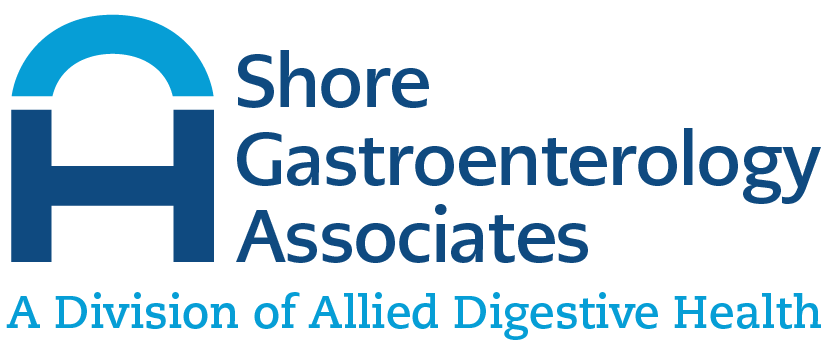
Irritable Bowel Syndrome (IBS) and Celiac Disease are the two most common gastrointestinal diseases that affect a majority of the population. Statistics show that over 40% of Americans suffer from a gastrointestinal disorder. When thinking about IBS vs Celiac Disease, both share multiple symptoms and are often mistaken for one another.
They are both chronic conditions that require long-term treatment. For proper diagnosis and treatment, it’s important to understand the key distinctions between IBS vs Celiac Disease. We’ll cover everything you need to know about the difference between IBS vs Celiac Disease to help you or your loved one get the right treatment.
Is it IBS or celiac disease?
IBS is a gastrointestinal disorder that affects the stomach and the intestines. The disease is characterized by discomfort in the digestive system. People with IBS may experience different symptoms depending on the type of IBS they suffer from, and this includes:
– IBS with constipation
– IBS with diarrhea
– IBS with mixed bowel habits
Celiac disease is an immune disorder that triggers an immune response in the small intestine whenever you ingest gluten. Over time, as you take more gluten, the immune reaction causes damage to the lining of the small intestinal walls. This prevents the small intestines from absorbing nutrients into the body, causing malnutrition and may further weaken the body’s immunity.
What causes or triggers symptoms of IBS?
The cause of IBS is still unknown. However, multiple factors play a role in the development of IBS, including:
– Changes in gut microbiome: A healthy gut biome consists of a balance of bacteria, fungi, and viruses. People with IBS have a different microbiome, indicating a disruption of this balance of microbiome is a contributor to IBS.
– Childhood trauma: Recent studies have shown a correlation between IBS and childhood trauma. People who experienced some form of trauma or abuse in childhood are more likely to develop IBS symptoms. The study attributes this relationship to changes in norepinephrine and serotonin levels and dysregulation of the hypothalamic-pituitary-adrenal axis.
– Severe bacterial infection: Bacterial infections such as H. pylori can cause IBS by damaging the stomach and small intestinal lining. Such infections can cause an overgrowth of bacteria. This in turn compromises the digestive system, triggering visceral hypersensitivity and IBS symptoms.
– Intestinal muscle contractions: The movement of food down the digestive system is facilitated by muscle contractions. The strength of the contractions affects the state of the food and the type of stool at the end of the digestion process. Stronger contractions in the small intestines can cause bloating and diarrhea, while weaker contractions can cause hard and dry stools.
– Sensitive nervous system: Several studies have explained the gut-brain axis and its role in physical and mental health. An overactive nervous system can trigger the digestive system and cause abdominal pain and other IBS symptoms. This results from uncoordinated signals between the brain and the gut, which may also explain why stress triggers IBS symptoms.
Certain foods may trigger IBS symptoms, but the list varies from person to person. The most common foods that trigger IBS symptoms include:
– Fatty/oily foods (deep-fried foods)
– Caffeine
– Dairy (for lactose intolerant people)
– Wheat (for gluten-sensitive people)
– Alcohol
What causes or triggers symptoms of celiac disease?
The exact cause of the celiac disease is unknown, but certain factors increase the risk of the disease, such as:
– Family history: celiac disease is linked with multiple genetic mutations of the HLA-DQ genes. These are the genes responsible for the immune system and are hereditary. Studies show that there’s a 10% chance of developing the celiac disease if you have a close relative with the disease.
– Early digestive tract infection: Celiac disease is more prevalent in people who had a digestive tract infection as babies. In addition, studies show that infants introduced to a gluten diet before three months have an increased risk of developing celiac disease.
– Health conditions such as ulcerative colitis, diabetes type 1, Down Syndrome, thyroid conditions, etc.
Celiac disease is mainly triggered by gluten consumption. Whenever a harmful substance is detected in the body, an immune response is initiated (antibodies) to fight against the substance. For celiac disease, the body mistakes gluten for a harmful substance, thereby triggering an autoimmune reaction to fight gluten. As a result, the antibodies released cause inflammation in the small intestines, triggering the symptoms associated with Celiac disease.
Gluten is a protein found in cereals like wheat, rye, and barley. People with celiac disease should refrain from taking any foods that contain gluten, such as:
– Bread and other pastries
– Pasta
– Oats (contaminated with other cereals)
– Beer (made from barley)
When to seek medical help
Symptoms of IBS and celiac disease range from mild to severe and vary among individuals. Patients with IBS and celiac disease often experience mild abdominal pain, discomfort, or changes in the stool (diarrhea/constipation) from time to time when triggered.
Seek medical help immediately if you experience any of the following symptoms:
– Mucus in stool: The presence of mucus in stool is a sign of gastrointestinal irritation. The irritation causes the large intestine (colon) to release mucus, which will then appear in the stool.
– Severe abdominal pain: Mild abdominal pain is common in patients with IBS and celiac disease. The pain often eases after a bowel movement. However, severe and persistent pain may be a warning sign to call your doctor.
– Severe diarrhea or constipation: Diarrhea and constipation are common IBS and celiac disease symptoms. If you experience heavy diarrhea (watery) or heavy constipation (unable to pass stool), seek medical help.
– Foul-smelling gas: While regular farts may have a bad smell, releasing gas that has a strong smell or that has a strange smell (out of the ordinary) may be a warning sign.
Symptoms that require immediate medical attention
– Dizziness
– Worsening pain
– Loss of appetite
– Sudden weight loss
– Joint pain
– Eye discomfort
– Nausea and vomiting
Get your IBS and Celiac disease under control with Allied Digestive Health
Gastrointestinal diseases like IBS and celiac disease can disrupt and affect your quality of life. While both conditions have no cure, you can manage the symptoms with ease and live a normal life with the right treatment plan. If you have been diagnosed with IBS or celiac disease or experience any symptoms related to the conditions, it’s important to speak to a gastroenterologist immediately.
Our team of board-certified gastroenterologists diagnoses and treat IBS and celiac disease. We provide customized treatment plans for all GI conditions. Contact us today to schedule a consultation with a gastroenterologist.
© All Rights Reserved


